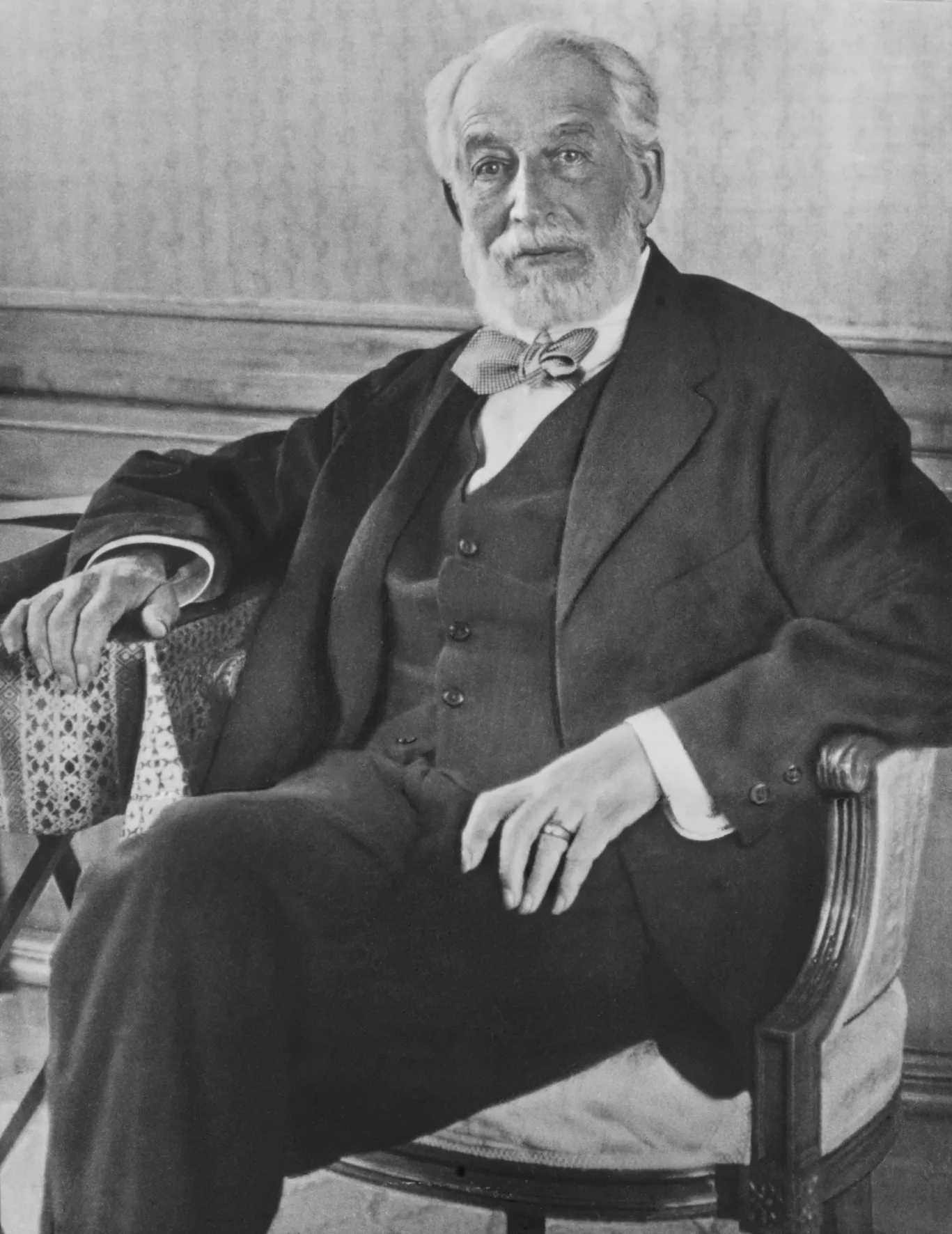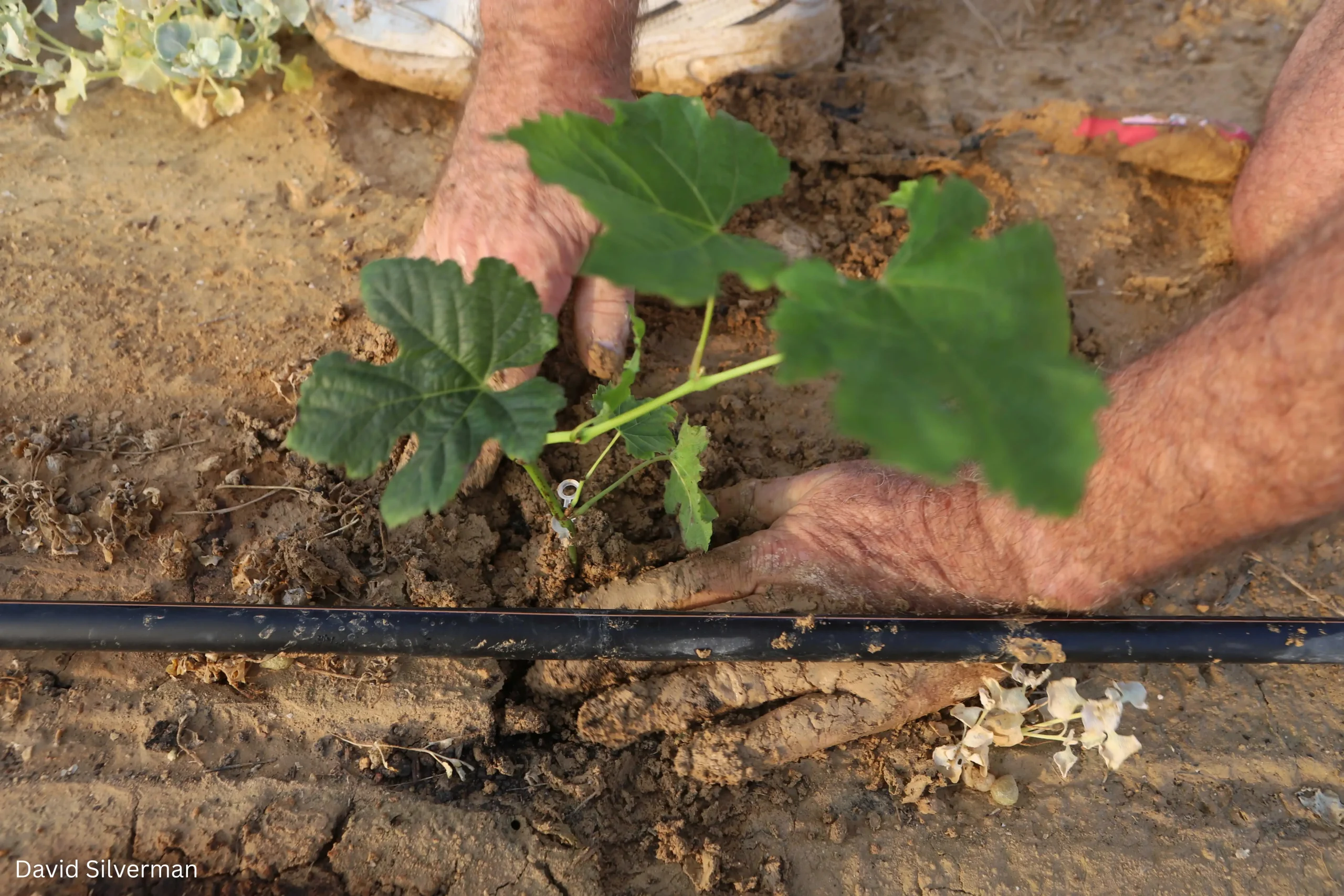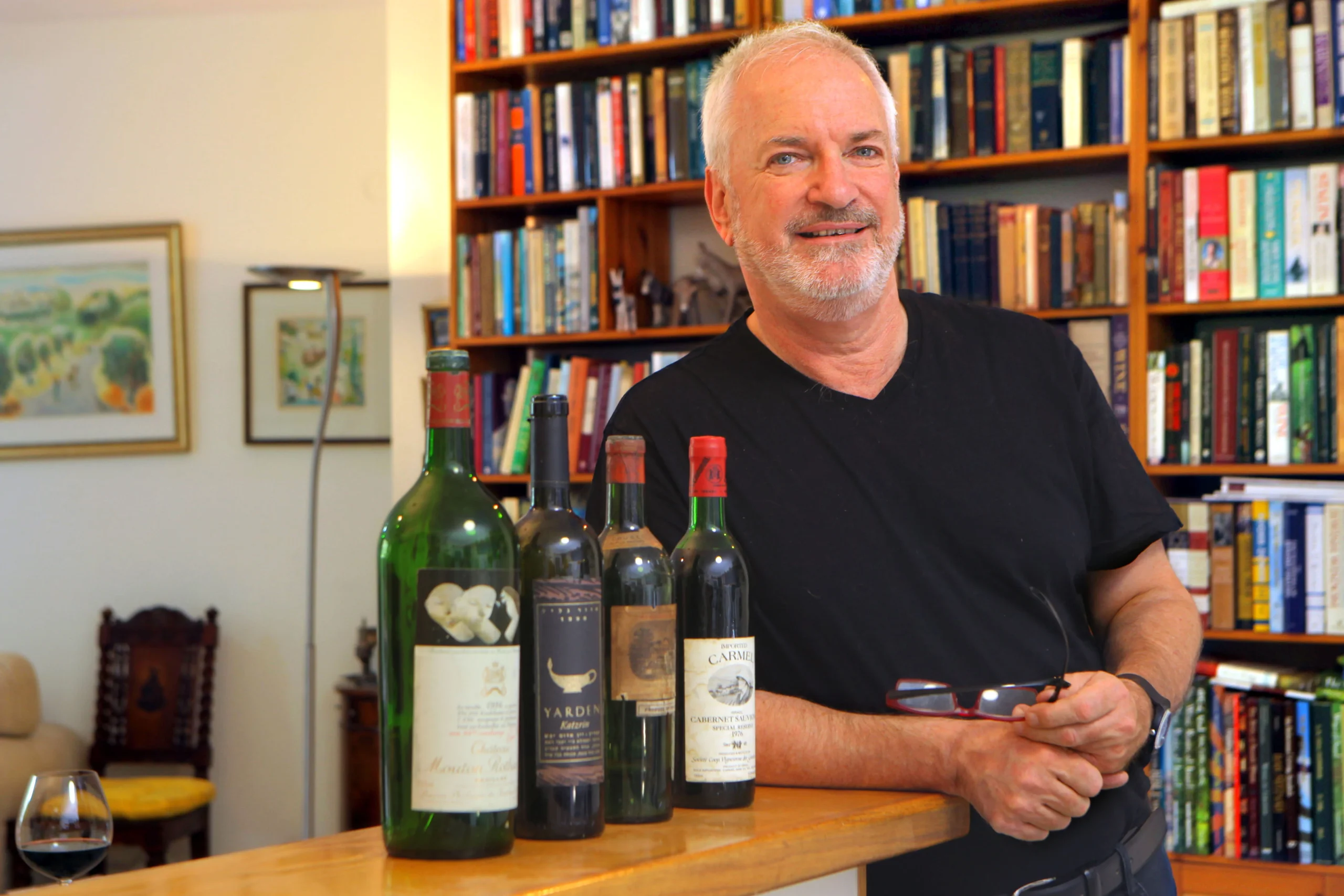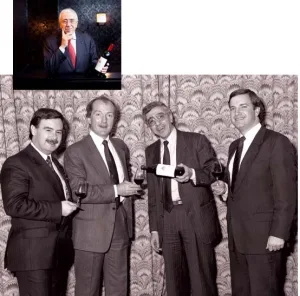I have been representing Israeli wine for 33 years. I started way back in the 1980’s working with Yarden, Gamla and Golan wines in the UK. After making Aliyah, I worked for the Golan Heights Winery in the 1990’s and then for Carmel Winery and Yatir Winery in the 2000’s. At different times I was involved with other, smaller wineries. During all this time, I have found myself not just representing the winery I worked for, but also representing corporate Israel to the wine world.
Over the years I have represented Israel to international wine writers and critics. Now I myself am a wine writer, and find I am still representing the industry. I write mainly about Israeli wine and am a partner of The Israel Wine Experience, which educates about Israeli wine. It really has been an honor and privilege to have a part in advancing Israeli wine during this particular golden era, because the developments of the last 30 years have been greater than those of the previous 3,000.
Yet, if I have learnt anything, it has been clear to me that the most important brand in Israel is not a winery like Carmel, Castel, Yarden or Yatir, nor a region, like the Galilee or Judean Hills. The most important brand in Israeli wine is…ISRAEL. I suppose I have devoted my career to advancing Brand Israel, but my efforts alongside many others, is no way enough.
The wine industry here is very bad at working together, either to increase consumption of wine in Israel or to increase exports overseas. There are too many egos and what are mistakenly seen as different interests. Quite apart from anything else, wineries are far happier buying a new tank or press, than investing in marketing. Twenty five years ago most of the work done in a winery was within the gates of the winery (and vineyard.) Today it is the opposite. Most of the work should be outside the gates of the winery. To plant a vineyard is easy, to make wine is not so difficult. To sell it is the problem. Carmi Lebenstein (ex Carmel) once said “to make wine is art, to sell it is a profession.”
In 2003 I founded Handcrafted Wines of Israel, a consortium of ten small wineries. Our first choice of name was Terroir Israel, but as busses were exploding all over Israel at this time, due to suicide bombings, we decided the word was too close to ‘terror’. So we settled for the safer ‘Handcrafted’. This was a watershed moment, because it was the first time Israeli wineries worked together to advance Brand Israel. The participating wineries for the record were: Amphorae, Bazelet Hagolan, Castel, Chillag, Flam, Hamasrek, Margalit, Saslove, Tzora and Yatir. Not a bad collection of wineries. It lasted two years, was very successful image wise in garnering PR, but less so in sales. In 2005 I remember sitting with owners of wineries with Ehud Olmert, then Minister of Trade and Industry, when it was announced that there would be a government supported consortium to market Israeli wine. We applauded. Handcrafted Wines was duly wound down and we waited…….and waited. However, nothing happened for the next fifteen years. Again, too many egos and too much internal politics.
Of course, individual wineries have not sat on their hands and have introduced their own initiatives to advance local interests. The Judean Hills Quartet is a splendid idea. It comprises four leading wineries (Castel, Flam, Sphera & Tzora), whose objective is to advance the Judean Hills region. Furthermore, three wineries (Golan Heights, Recanati & Galil Mountain) gather together to market the Northern Israel appellations (Golan and Galilee) at the annual Prowein Exhibition in Germany. However, there was no initiative on a national scale. It always infuriated me to see Wines of Turkey and Wines of Lebanon up and running, but here in Israel, nothing.
That is until now! The exciting news is that Israel Export Institute has announced the formation of a Wines of Israel campaign that will take place in the USA for the next four years. America is definitely the correct choice. It is the country with over 50% of Israeli wine exports and also remains the place with by far the most potential to advance sales and the image of Israel as a quality producing wine country.
Now, the Israel Export Institute is much maligned because it is an easy target, but the truth is without the Export Institute there would be next to no work done to advance Israeli wine. Our wine authorities should be the address for those who are frustrated. It is certainly true to say that most of the advances in Israeli wine have been winery and winemaker led initiatives.
The Export Institute has gallantly assisted the industry to represent Israeli wine abroad whether organizing Israeli stands as international exhibitions, organizing generic tastings in New York, London or Tokyo or inviting important people to Israel. For instance, the first ever organized visit of the Institute of Masters of Wine to Israel took place last year, courtesy of the Israel Export Institute. Twelve Masters of Wine were able to learn about and experience Israeli wine over an intensive, well-organized five day itinerary.
The Wines of Israel program has been launched by the Export Institute in partnership with The Ministry of the Economy, Ministry of Agriculture, and the Wines & Grapes Board. The funding will amount to a million dollars a year, of which the government will put forward two dollars to every dollar provided by the wineries. At least 25 wineries have signed up to be part of this. There will be a committee to oversee the project. This is made up of representatives of nine wineries, three importer – distributors in the United States and representatives from the Export Institute, the Ministries of Economy and Agriculture, and the Wine and Grapes Board. Only in Israel would you have committee of 16 people to oversee a project where there are only 25 participants! However, I suppose those contributing money, deserve to have say and the process has to be seen to be fair and above board.
Colangelo & Partners has been appointed pick up the gauntlet and manage Wines of Israel in the USA. Now, this is an inspired choice. They are specialists in food, wines and spirits in the arenas of branding, press relations, event marketing, trade relations and digital marketing. They are one of the leading companies in the USA, and have offices in New York and San Francisco. They already work with major wine producing countries like Spain and South Africa, and also niche countries like Portugal and Greece, where the challenges are very similar to Israel’s. They are absolutely not from the kosher or Jewish niche, nor do they deal with the trade marketing & sales. The distributors do that. They were selected after exhaustive vetting by a committee of wineries chaired by the Export Institute. So, they are well chosen because their abilities are complementary to the existing expertise and role of the distributors.
Adiv Baruch is the Chairman of the Israel Export & International Cooperation Institute (to give its full, rather unwieldly name). Appointed in January 2018, he has made the wine program his baby and owing to his authority, charm, determination and incisiveness, the dream of many like me, became a reality. He schmoozed the leading wineries, enthused the leading distributors and displayed impressive leadership to help guide the ship over the rocky waters as details were being closed and egos were rampant.
Baruch has been in the Hi-tech industry for over thirty years. He is chairman of Jerusalem Technology Investments, Maayan Ventures and Covertix. He was one of founders of Ness Technologies, served as President of Nyotron and as a director of the Bank of Jerusalem. One could go on and on. I wanted to find out why someone from the world of Hi-Tec would find interest in wine, which is a conservative, Low-Tec world, which exports totaling only $50 million, a mere drop in the ocean compared to the worlds he comes from. So, I went to meet him.
He admitted he came to the project late, and gave full credit for the professionalism, passion and drive of what he referred to as ‘the team’, referring to Daphna Sternfeld, Yaara Shimony and Noa Coleman. Yaara is the manager of the wine category. She is masterful in dealing with the wineries and at keeping focused on the overall objective. She has shepherded the project with skill and tenacity from the time it was a germ of an idea five years ago, to implementation today. She deserves enormous credit and thanks from every winery, whether they are participating or not. She receives valuable support from Noa Coleman, the marketing coordinator. Yaara reports to Daphna Sternfeld, deputy director general and head of the consumer goods division, whom twenty years ago managed the wine category herself.
However, Baruch admitted he helped provide the glue to finalize things and bring different parties together. He expressed special satisfaction there are wineries of different sizes participating in the program. He made clear “we are aiming for brand awareness……the distributors will continue to take care of sales.” He explained how proud he was of Israeli wine, but made the point the world does not yet know Israel as a quality wine producing country. So there was a great deal of work to do.
He described wine as fundamental to the business discussion. “a bottle will be on the table as part of the small talk of a negotiation. Wine is part of the business culture.” He said Israel was no longer a country of Hi-tech or Low-tech, but a country of In-tech….innovation technology. Wine is the industry that brings together all the components of Israel today, including a long history from Biblical times, the innovation, creativity and modern technology.
I admired the commitment and passion in Baruch’s words. He is a spiritual man, with a deep feel for Judaism, a sense of history, yet he himself is a successful symbol of modern Israel. Yet, from the roots of his being, he really feels that wine brings all these threads together. In that, he is correct. Wine was an important, even vital, beverage and mainstay of the economy in ancient times. It connects Biblical Israel and the beginnings of the Jewish people, with the Israel of today. What represents modern Israel better than a bottle of wine? You can’t give a bottle of Hi-tech as a present!
The focus therefore moves to Brand Israel, which in my view is attached by the hip to the Eastern Mediterranean. I have spent a large part of my time talking about the Eastern Mediterranean wine region over three decades. Kosher is not a country and Israel is not an island. We are part of the Eastern Mediterranean region, that gave wine culture to the world, and that is now undergoing an impressive and dynamic revival. No doubt, our wines should be on the shelves alongside those of Greece, Cyprus, Lebanon and Turkey. We should use words like Israel and Eastern Mediterranean a lot more, and terms like Jewish, Kosher and Middle East a lot less!
Last word to Adiv Baruch: “We are all aligned with the same target. We are doing something we believe in with the passion to succeed and we realistically understand our strengths and weaknesses. This is the recipe for success.”
I think Wines of Israel is a very important step and a very exciting one. All will benefit from a successful campaign and it is important all work together for a common cause. YALLA (LETS GO), WINES OF ISRAEL! Let’s get started!
Adam Montefiore has advanced Israeli wine for over thirty years and is referred to as the ambassador of Israeli wine. He is the wine writer for the Jerusalem Post. www.adammontefiore.com

















